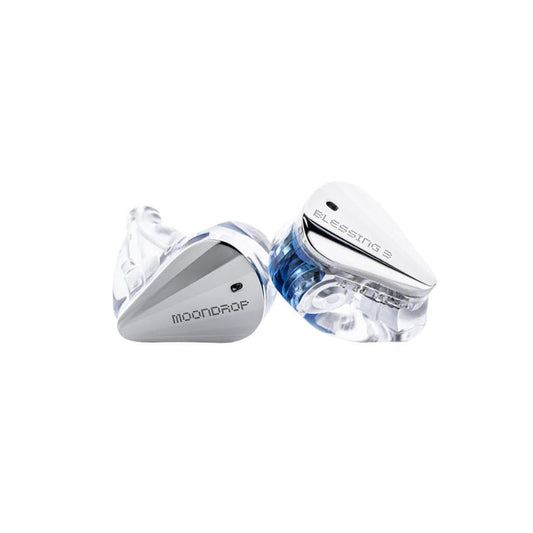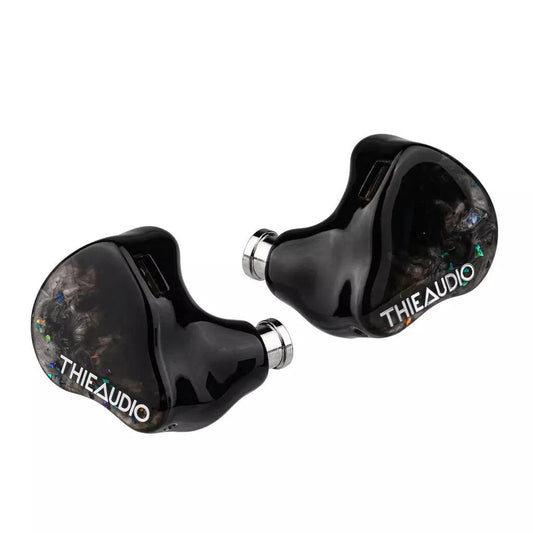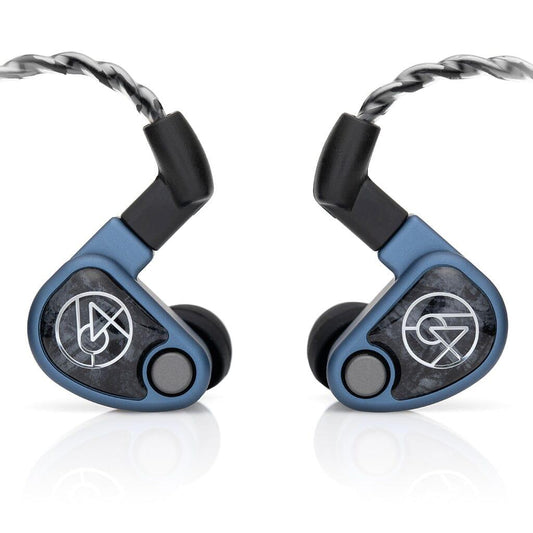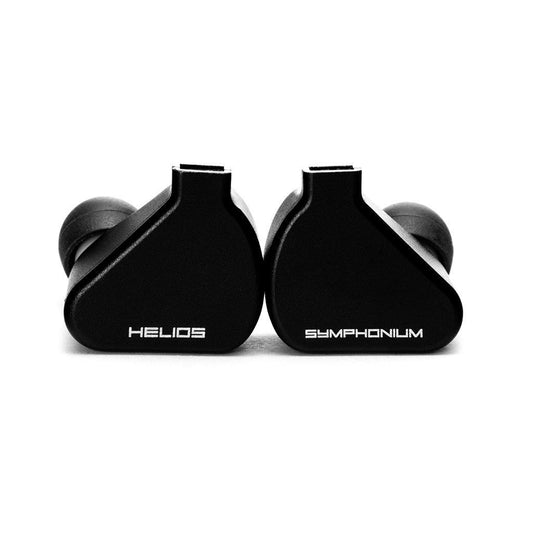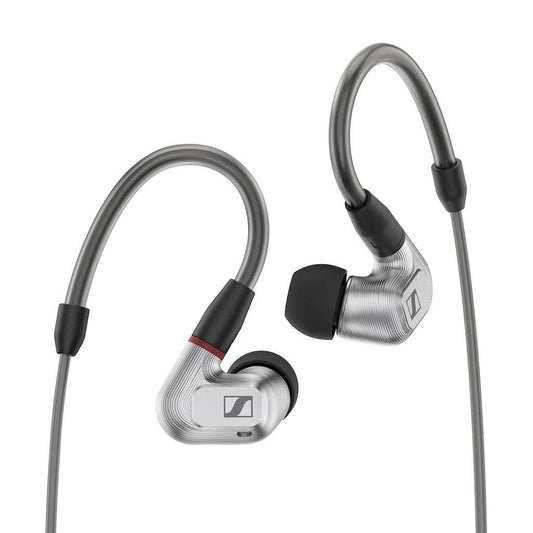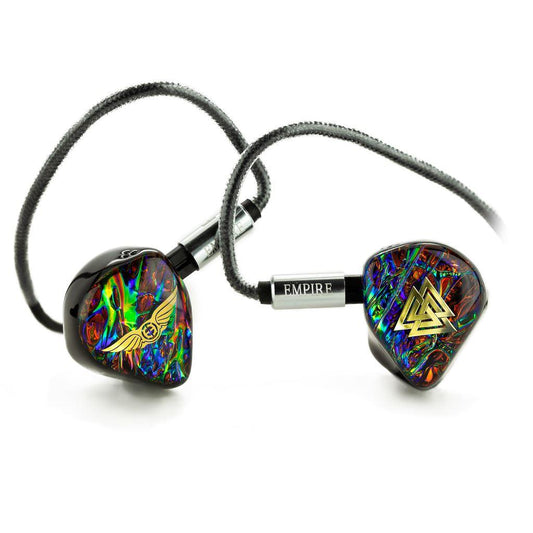The Best In-Ear Monitors (IEMs) Summer 2024
As we settle into the second half of 2024, join us at The Audio Files as we update our buyer's guide for in-ear monitors (IEMs) worth talking about. From $20 to over $5,000, you're sure to find something to elevate your listening experience.

Introduction
As we settle into the 2nd half of 2024, it’s time for another update to our bi-yearly in-ear monitors (IEMs) buyer’s guide. We’ll be taking a look at some of the IEMs worth talking about in the market. As with previous installments, we’ve kept much of the same format and principles found in our previous guides but shifted a few things around to keep up with the ever evolving IEM landscape.
This guide was written by Fc-Construct with insights from the rest of the Headphones.com reviewer team. Previous versions of this guide was co-written with Precogvision, and some of those elements remain here.
How We Chose
No matter your budget, the IEMs in this buyer's guide represent some of the best that this hobby has to offer to date. With emphasis on some. The personal audio hobby, particularly in the IEM space, is vast. We’ve tried most of the IEMs worth talking about in the past 5 years to create this guide. While we could’ve included a few other IEMs we liked here, we really had to narrow it down to a select few. There are sure to be lesser-known models from talented designers across the globe that we’ve never had the chance to try. And truly, that’s the heart of this hobby - individuals trying out new gear and sharing their thoughts with the wider audio community all in the pursuit of great sound.
Before we start, here’s a summary of our approach from that original buyer’s guide:
When it comes to headphones and IEMs, tuning is king. Tuning can be best thought of generally as the “sound profile” of an audio product, and every headphone or IEM has a frequency response that describes a measurement of its sound profile. This isn’t the article to delve into specifics but suffice it to say that without a favorable tuning, it becomes hard to recommend a product. IEMs makers have gotten extremely good at tuning IEMs in recent years and below are a sample of some of the best options.
However, tuning isn’t everything when it comes to sound quality - there is also its technical ability. For example, soundstage, imaging, and resolution are common descriptors of performance. While price is not correlated with sound quality (there’s a lot of bad products out there!), for the items listed in this article you can think of them as a general step up in technical ability in each segment. With diminishing returns, of course.
Decisions, Decisions
In behavioral economics, there is a concept known as The Paradox of Choice. In short, it means that when presented with so many options, it can actually be harder for an individual to make a decision. They may end up stuck in analysis paralysis. Nowhere is this more true today than in the highly competitive IEM space where countless new products pop-up every month.
Remember: if you don’t see a popular IEM here it doesn’t mean that we necessarily think it’s bad. Honestly, the market today has progressed so much and is so competitive that almost anything you see highly recommended nowadays is going to be rather decent. We’re just trying to keep things nice and easy for this article. Paradox be gone.
Best IEMs Up to $100
The IEMs in here are considered to be part of the budget class and will be the best bang-for-your-buck that you’re going to get. We’ll give you a few straightforward options. Don’t worry too much about their technical performance; for the most part, they’re all within the same ballpark. It doesn’t do much to stress about all the little comparisons that a reviewer might harp on when you might not have any context for these talking points. Pick one, enjoy the music, and then plan for your upgrade (if you need one). Remember: this hobby is a journey. The most important part is to get started.

Truthear GATe - $20
The Truthear GATe is the prime representation of the state of the budget IEM market. Genuinely good sounding products locked in a race-to-the-bottom. This is ultimately good for us, the consumers. There is an abundance of choice at extremely affordable prices. The GATe is a reasonably balanced sounding IEM that emulates the tuning of <$100 benchmark IEMs a couple years ago, but at $20. To top it off, the GATe is a comfortable IEM, a characteristic that cannot be said for many other options. While it might not be as good as its now discontinued predecessor, the Truthear Hola, the GATe is still a fine starting point on your audio journey.
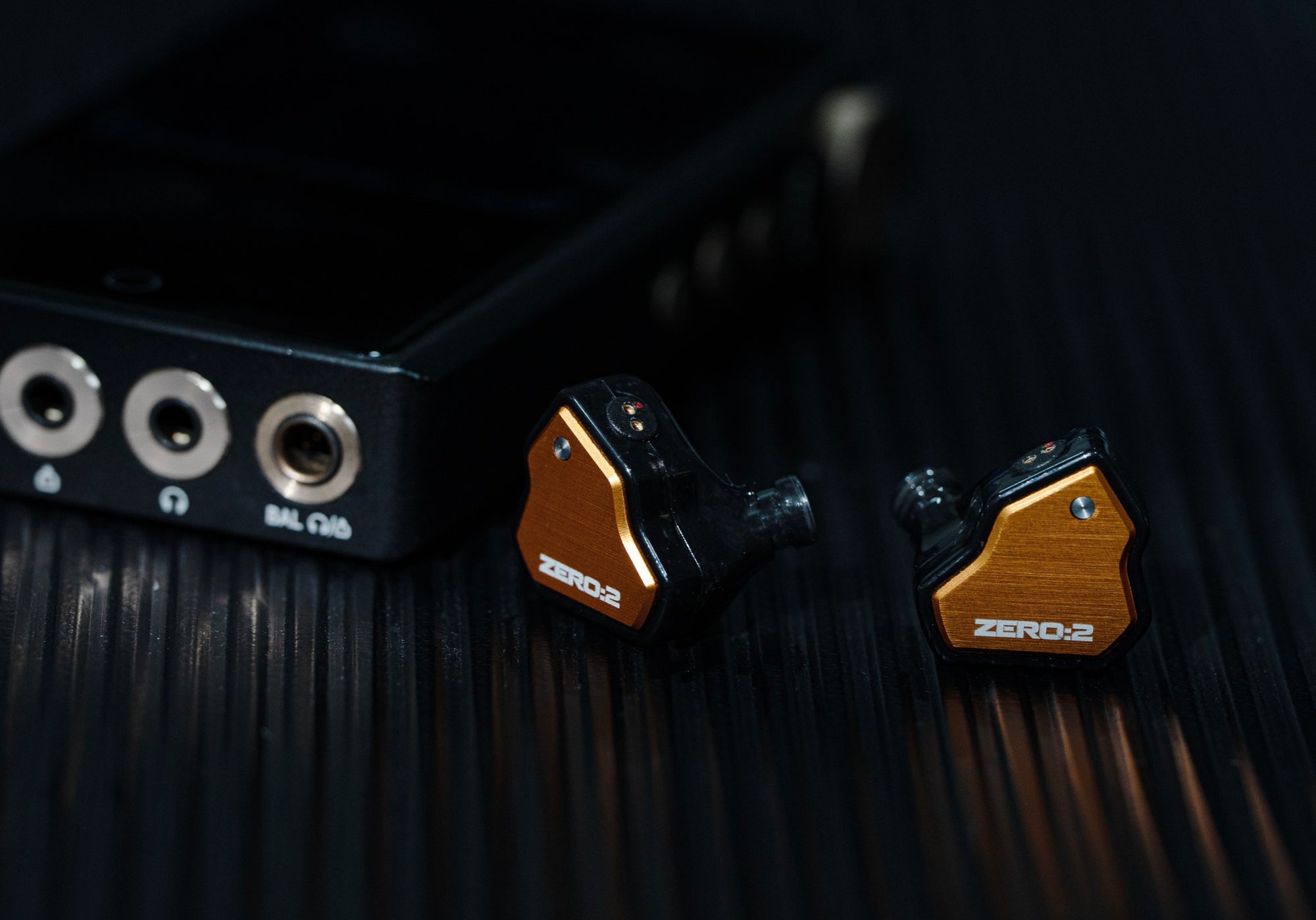
Image credit to 7Hertz’s Facebook page
7Hz Salnotes Zero 2 - $25
Representing another take on the budget class, the 7Hz Salnotes Zero 2 is highly influential community member Crinacle’s follow-up to his original $20 benchmark Salnotes Zero. Minor tweaks were made to have more bass and better controlled treble, creating an even more pleasant and enjoyable sound signature. Like the GATe, it’s hard to go wrong here as a first choice. The only complaint we have is that its fit isn’t quite for everyone.
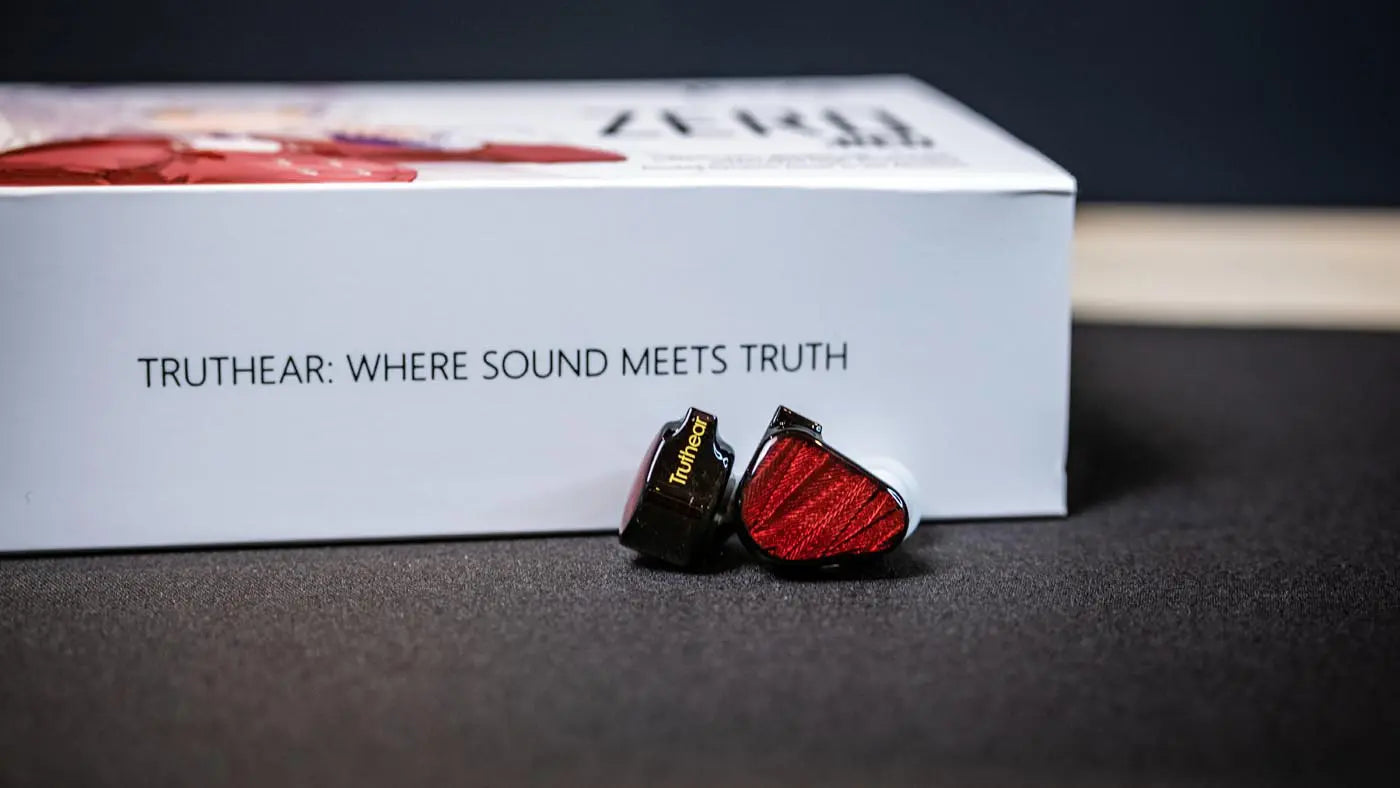
Truthear x Crinacle ZERO: RED - $55
Another Crinacle collaboration product, the Truthear x Crinacle ZERO: RED is one of the best-tuned budget IEMs around with its neutral plus sub-bass tuning. What sets it apart is its excellent bass quality and a very well-controlled treble response when compared to the rest of the competition. Plus it comes with a fun little Bass+ adapter for more oomph if you’re into that. Just note that the nozzle size is quite large and comfort may be an issue. Yes, this problem will be a recurring theme in this guide.

Truthear Hexa - $80
You might have noticed at this point that Truthear has been dominating the budget section of this buyer’s guide. It all started here with the Hexa. Though it’s one of their older products, it’s still a benchmark with simply excellent tuning and one of the best technical performances on display in the sub-$100 price range. It’s not our first pick, but if you’re concerned with the RED’s fit, the Hexa is the way to go.
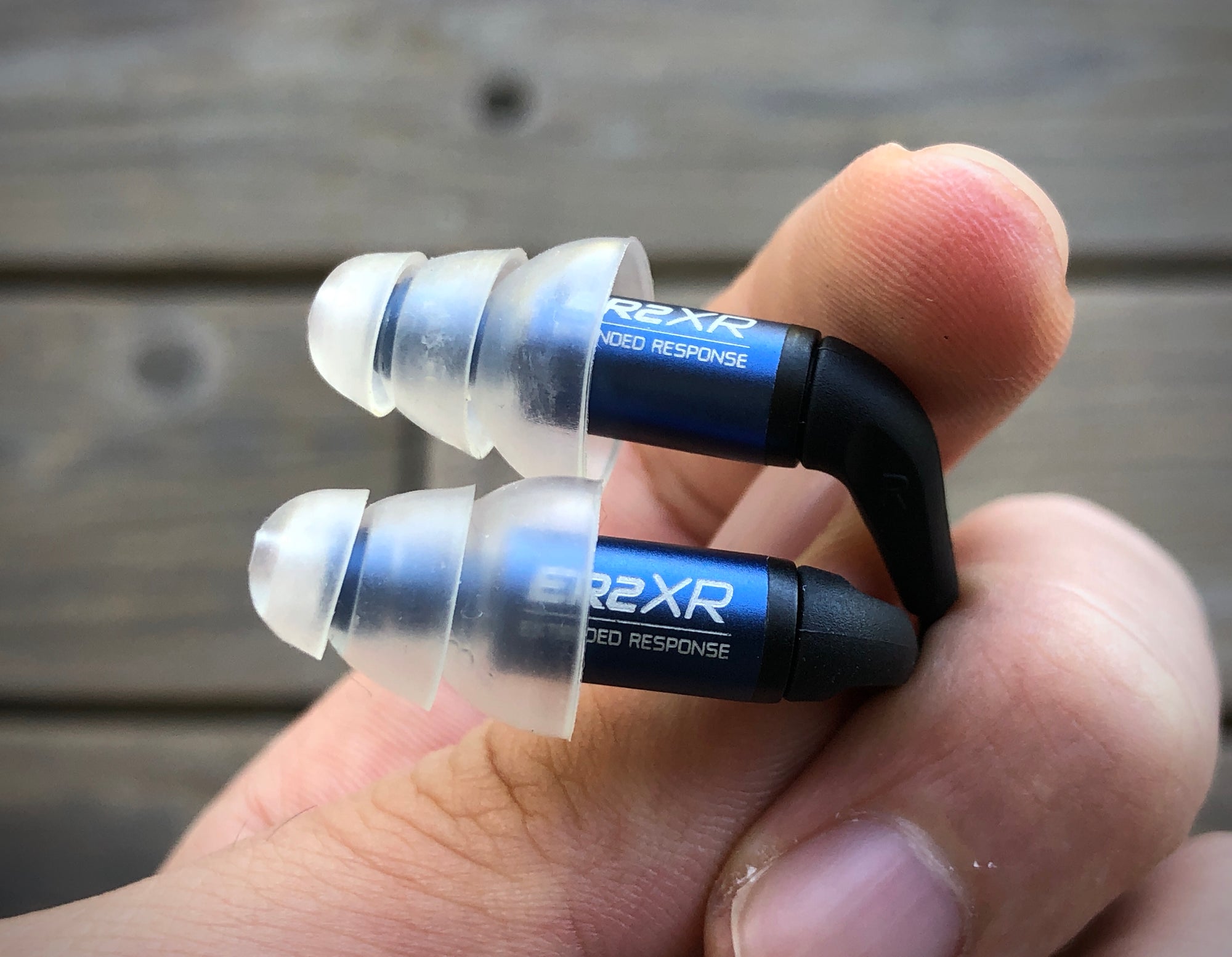
Etymotic ER2XR - $100
The Etymotic ER2XR has a presentation that is utterly unique - an extremely in-your-head sound courtesy of its notorious ultra-deep fit triple-flange tips. If you don’t mind the fit, the ER2XR continues to be a one-of-a-kind product. It follows Etymotic’s modern interpretation of the classic Diffuse Field tuning. And it’s better. The overall sound here is a reference-oriented one with a touch of oomph down-low. Though the bass is lacking in texture, it is quite clean with adequate slam. While some might find the ER2XR’s midrange abundance overly forward, its laser-sharp focus on vocal performance sets it apart from the competition. The only knock against the ER2XR would be its rolled-off treble response and very narrow imaging.

Honorable Mention: Samsung Galaxy Buds FE - $100
For those looking for a wireless option and only really use IEMs on the go, the recently released Samsung Galaxy Buds FE is a very reasonable choice, provided you have a Samsung device to pair it with. It comes stock with a bassy profile and a more balanced tuning in the Clear preset EQ option. It has a fairly relaxed upper midrange that’s easy to listen to without any real deal breakers. While its sound quality isn’t quite as good as the previous options, the wireless convenience and tech features like ANC and Ambient/Transparency modes make up the difference.
Best IEMs Under $250
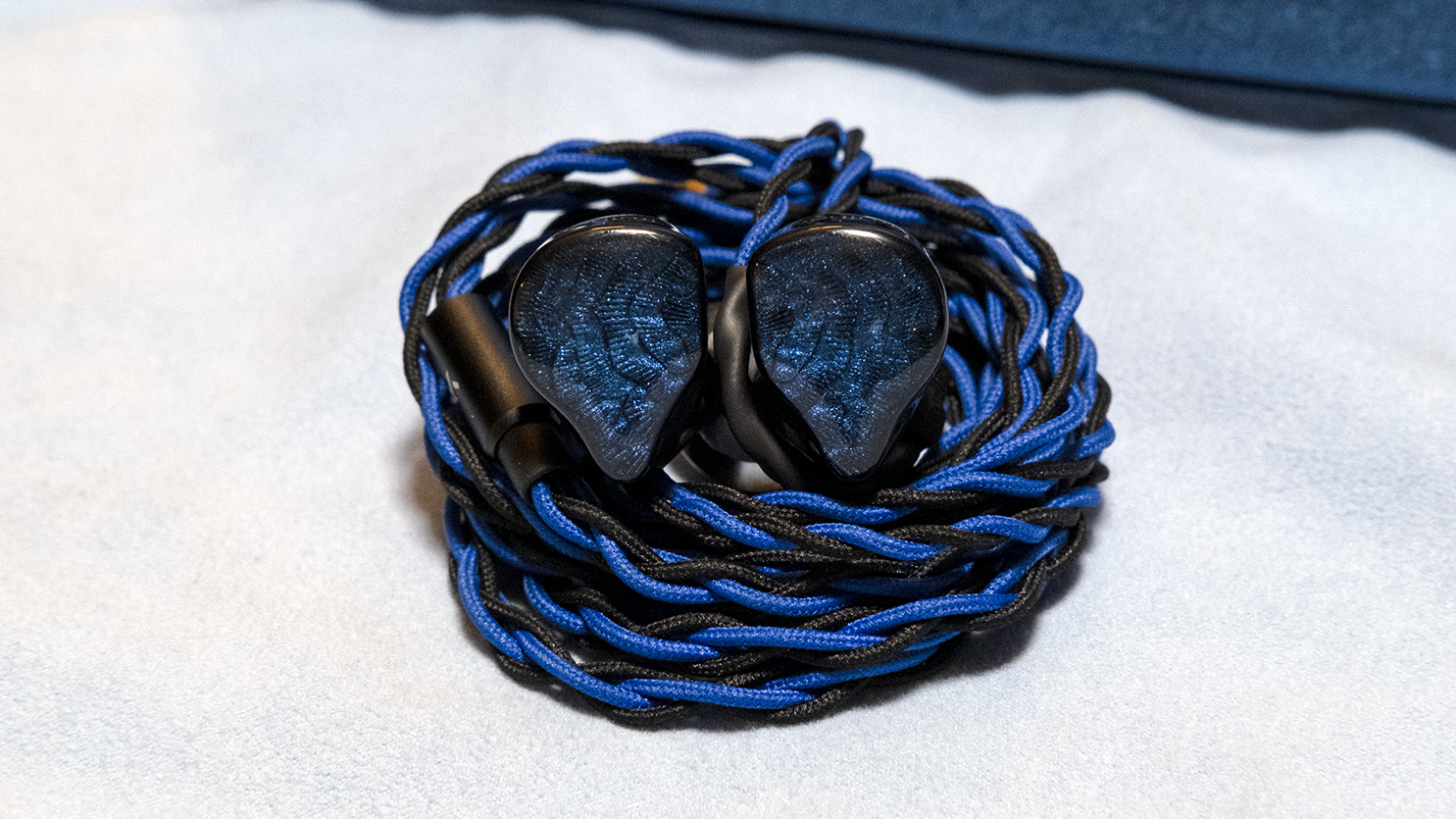
Truthear Nova and the Harmans ~ $100 - $250
Like the GATe, the Truthear Nova is yet another showcase of the race-to-the-bottom theme gripping the IEM market. The Nova effectively offers the same Harman-tuning of the $520 MoonDrop Variations at only $150. Of course, they don’t sound identical. Some would call the Nova a “baby Variations”. But price isn’t correlated with quality and in some cases, you might even prefer the Nova’s technical presentation. Either way, it’s well worth a recommendation given the significant value it offers. For those who enjoy the Harman-style IEM tuning, the Nova might just be the perfect stopping point.
But it’s not just the Nova. There’s been an explosion of Harman-like IEMs such as the Simgot EM6L, Binary Acoustics x Gizaudio Chopin, and Kiwi Ears Quintet. They’re all excellent options and will really depend on just how closely you’d like your IEM to sound like the (in)famous Harman in-ear target. The Nova is the closest rendition but for those wanting a bit more midbass presence, be sure to explore reviews of these other options.
Read Listener’s review | Watch Resolve’s review
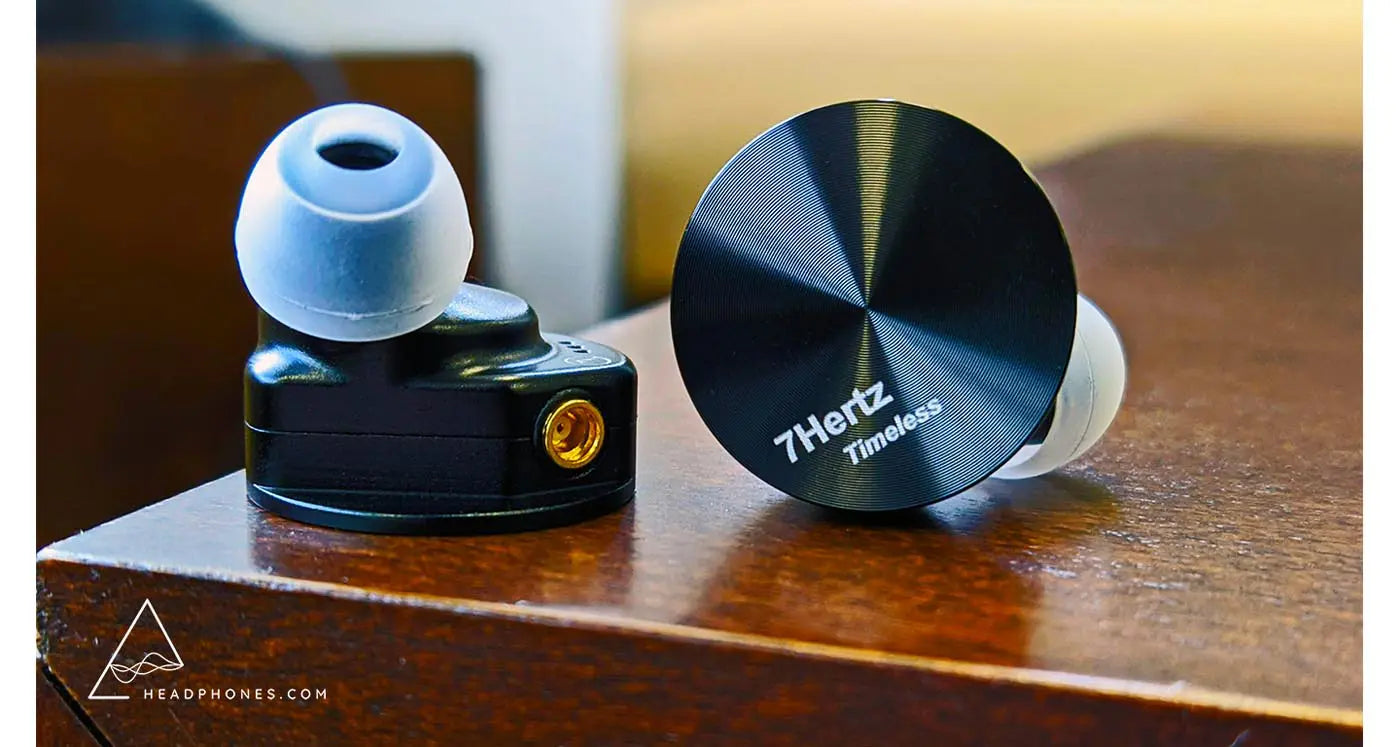
7Hz Timeless and the Planars ~ $100 - $250
In 2021, the 7Hz Timeless ushered in the planar IEM revolution. The Timeless was the world's first competent planar IEM that clocked in at a highly competitive price of $220. With a generally pleasant tonality and excellent technical performance marked by great clarity, it's little wonder that the Timeless made a name for itself in the IEM market. Soon after, a rush of me-too products followed suit. You can see Resolve’s review here comparing a number of the most popular models. Because they share a similar ~14.8 mm planar driver, they generally have a similar sound to one another. There’s quite a wide variety of options and prices so it should be easy to find one that fits your tastes and budget. Almost any one you pick will be a solid choice. Just note that the treble of these planars are where they most differ from one another so be sure to exercise a bit of due diligence in case one model might be a little too intense. For example, the Letshuoer S12 is extremely popular but has quite a bit of bite in the mid-treble. The Tin HiFi P1 Max on the other hand is a warmer, more subdued choice.
Read Fc-Construct’s review | Read Precogvision’s review
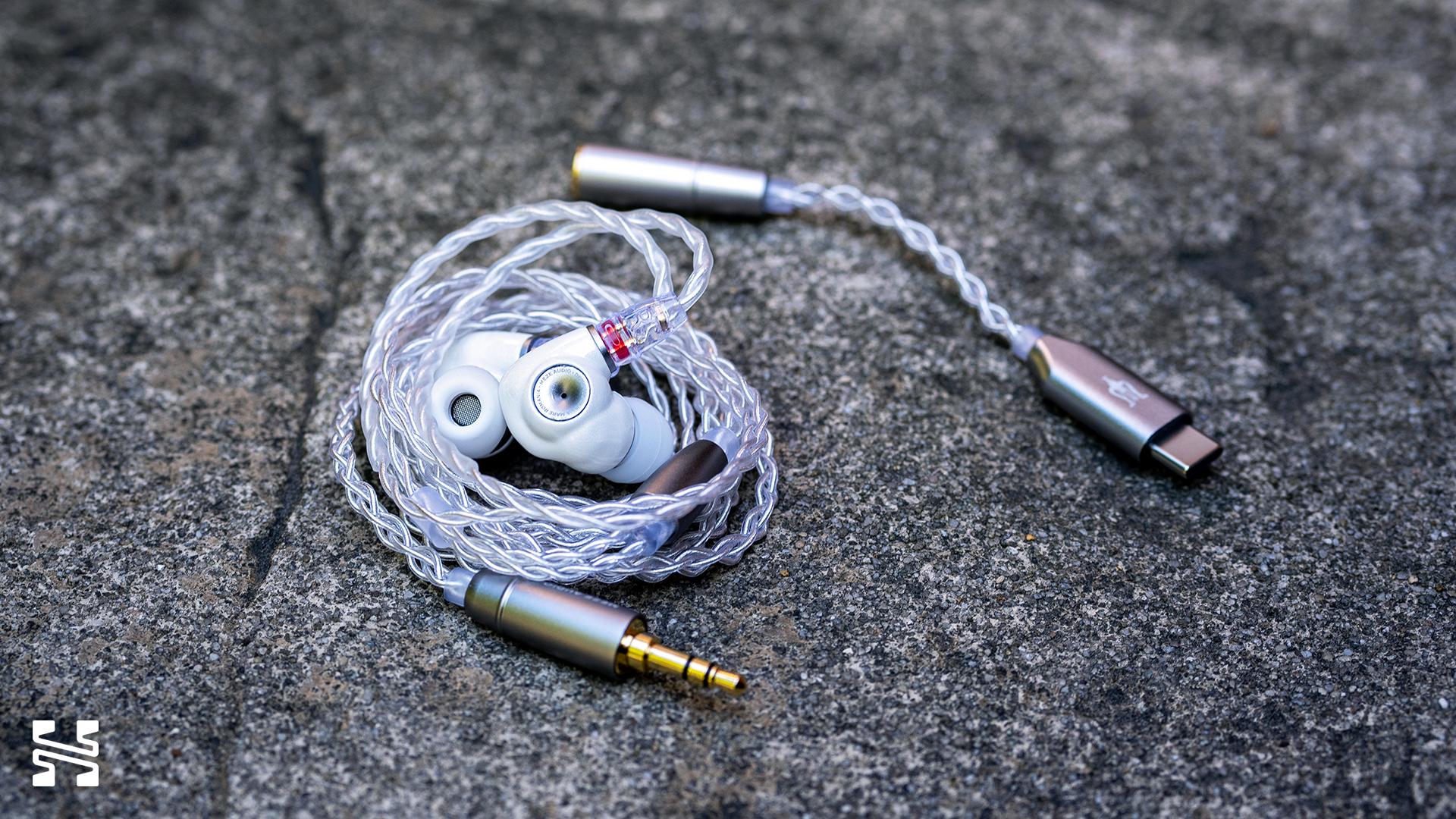
Honorable Mention: Meze Alba - $150
If you’re coming in from the headphone world, you might be familiar with Meze. While they’ve successfully developed a cult following with their high-end headphones, they haven’t been quite so lucky in the IEM world. It’s just a completely different market.
But with the $150 Alba, Meze has managed to make a name for themselves. Best positioned as a premium option for a first time buyer, the Alba is comfortable (which can’t be taken for granted!), well-built with a gorgeous white shell, and comes with a little USB-C adapter. Though it isn’t anything special in the IEM market with its mild V-shaped tuning and vocal forwardness, it’s almost certainly going to be an enjoyable listening experience. For anyone who’s head is spinning from all of these different IEM options, the Alba represents a safe, all-in-one-option from a reputable high-end brand.
Meze Audio Alba In-Ear Headphones
Best IEMs Under $1,000
With how much the market has evolved, midrange IEMs have undergone a drastic change. The landscape has started to really shift towards either ends of the price range: entry-level or kilobuck. However, there are a few very important IEMs here that must be talked about. Though they might not be the best bang-for-your-buck anymore, the IEMs here are the final stop before the diminishing returns kick in extra hard.
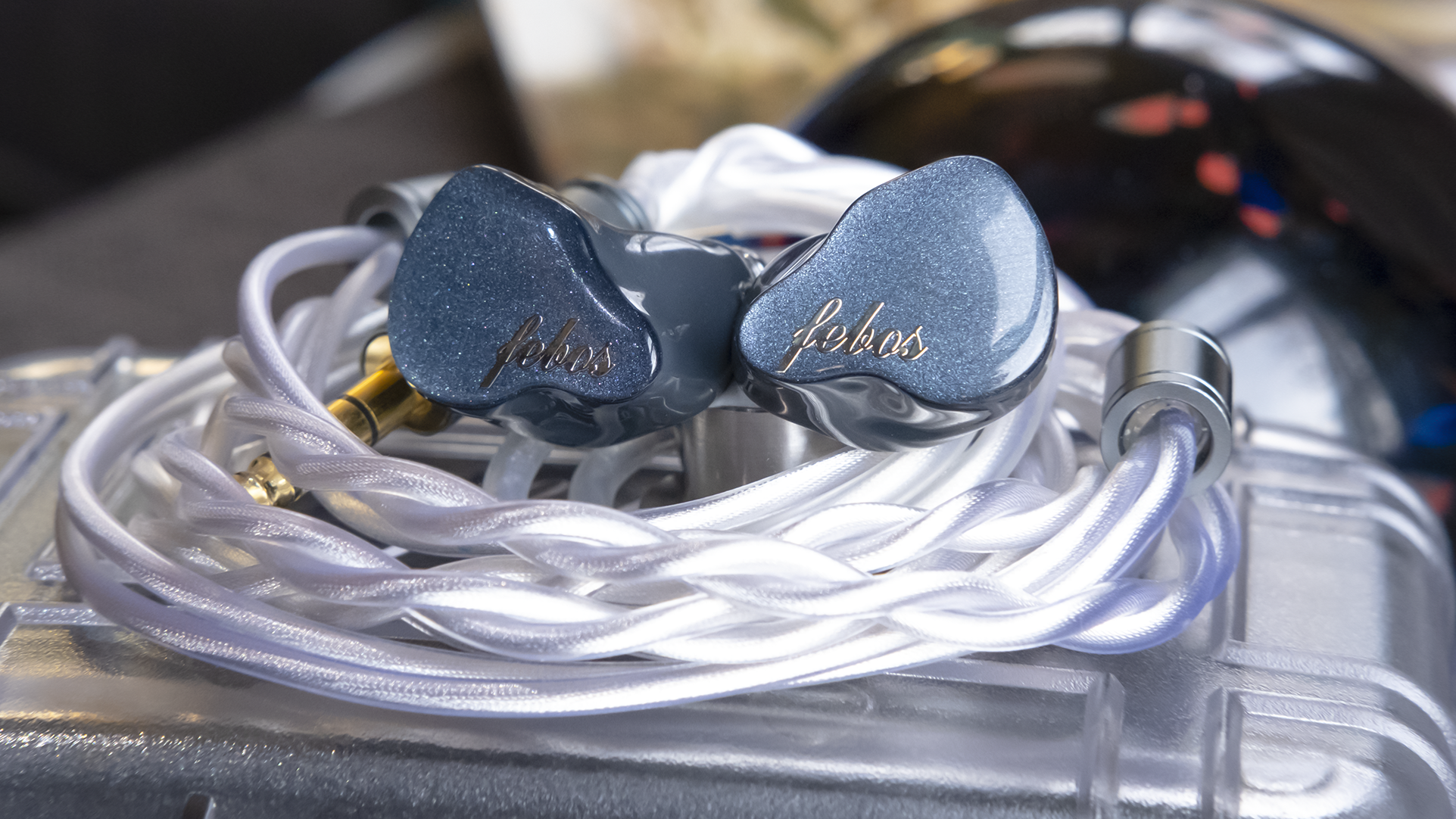
The “New Meta” Tuning - DUNU x Gizaudio DaVinci ($300), MoonDrop x Crinacle DUSK ($360), and Hisenior Mega5EST ($550)
The newest generation of IEMs have a “new meta” tuning fundamentally different from the Harman-like IEMs above. They follow a different acoustic philosophy in their design borne out of an updated understanding of measurements as a result of moving to the B&K 5128 measurement system.
Currently, there are three major IEMs in this category - the DaVinci, the DUSK (on the DSP Default preset), and the Mega5EST. Though they may be similar in philosophy, they do differ appreciably in their sonic qualities. Given the popularity of these products, there’s been no shortage of reviews for you to dig into. But here’s the high level differences between them:
- Bass: The DaVinci has a big thumpy bass shelf that sticks out from the rest of its tuning and doesn’t have a seamless bass to midrange transition. Depending on preferences, some might even call it overbearing. In comparison, the DUSK and Mega5EST have a more tactful bass elevation that feels properly balanced.
- Mids: The mids of all three are very similar to one another, with the DaVinci and Mega5EST being a tad warmer than the DUSK.
- Treble: The upper treble of the DUSK is a prominent feature of its sound. The DaVinci is more relaxed there, while the Mega5EST has a noticeable peak.
- Technical Performance: When it comes to soundstage, resolution, etc. they don’t differ too much from one another. However, the DUSK is the winner here with a more focused presentation and tighter sound.
Overall, the DaVinci is the best value pick given that it’s the cheapest of the bunch while performing to about the same level. While the DUSK would’ve been worth the additional $60, it’s need to use a USB-C cable with a preset DSP does introduce some downsides in its utility. The Mega5EST is a good blend of the three, but at $550, is also significantly more expensive.
Read Listener’s review of the DaVinci, DUSK, and Mega5EST | Watch Resolve’s review of the DaVinci and DUSK | Watch DMS’ review of the Mega5EST
Hisenior Audio Mega5-EST In-Ear Headphones

The “Old Meta” Tuning - MoonDrop x Crinacle Blessing 2: Dusk / MoonDrop Blessing 3
While the new meta is the current hotness, not everyone might agree with its direction. After all, plenty of older IEMs have brought hours of enjoyment to various listeners. In that spirit, we’d like to highlight two IEMs that embody some of that history: The original MoonDrop Dusk (Blessing 2: Dusk) and the Blessing 3.
The MoonDrop x Crinacle Blessing 2:Dusk was Crinacle’s first truly successful collaboration product that subsequently kicked off the current reviewer collab craze. Compared to the original Blessing 2 that the B2:Dusk improves upon, it adds a much needed sub-bass lift and follows a neutral tonality onwards, minus the treble which could definitely use some more extension and has something of a mid-treble recession.
After the runaway success of its Blessing line-up, MoonDrop released the Blessing 3 as a direct successor to the Blessing 2 at the same price. It undoubtedly improves upon the Blessing 2 or B2:Dusk in its technical performance, particularly in having a notably tighter bass response and extended treble response. However, it does so at the cost of the B2:Dusk’s superb tonality, with the Blessing 3 taking on a thinner, more strident sound. Moreso than the Nova and Variations.
Read Precogvision’s Blessing 3 review | Watch Goldensound’s Blessing 3 review | Read Precogvision’s B2:Dusk review | Read Fc-Construct’s B2:Dusk review
Moondrop Blessing 3 In-Ear Headphones
Honorable Mention: 7th Acoustics Supernova - $750

The 7th Acoustics Supernova surprised Precogvision, especially given that it’s produced by an obscure boutique brand out of Indonesia. But make no mistake, the Supernova is definitely legit. It has one of the most pleasant tunings that he has heard in an IEM, and this reflects in its frequency response which is completely devoid of any egregious peaks or valleys. In fact, the Supernova is reminiscent of good speakers (which usually measure flat) in the sense that cranking the volume on it is almost effortless. Now, the Supernova definitely isn’t the last word in technicalities, but it’s no slouch in this department either for $750. If you’re after the possible king of tonality, the closest that you’ll find to a tonal panacea, this is an IEM well-worth giving a listen. But you might need to have some patience, as each Supernova is built by hand!
Best IEMS Under $2,000
Fact: You don’t need to spend thousands to have an awesome listening experience. Great audio is readily accessible these days and the first half of this article was meant to help you find just that. In fact, someone might arguably settle with an IEM like the DUSK as their endgame IEM. Tuning is king.
With many affordable options then, why would someone want to spend so much on high-end products? The answer is that audio is a very personal hobby, and there is a broad spectrum of individual preferences when it comes to sound. A pitfall of the current IEM market, especially when it comes to more entry-level products, is that they are well-tuned but converge into a similar sound. In contrast, some of the more expensive, boutique IEMs often cater to the aforementioned variety in listener preference. This means that they often sport tunings that might be more polarizing, but they may offer certain technical qualities (such as resolution, imaging, soundstage, and dynamics) that would otherwise rarely be seen in conventional tunings.
Ultimately, then, the goal of high-end IEMs is to strike the perfect balance between tonality and unique technical qualities. Unfortunately, there are a lot of expensive IEMs out there that fail to do so. In this section, we’ll be sharing a variety of IEMs that we think deliver an experience worth talking about.

Thieaudio Monarch MKII or MKIII - $1,000
Gatekeepers to the kilobuck space, the Thieaudio Monarch MKII and MKIII have earned their place on this list. The MKII is a strong all-rounder with minor flaws in being a touch too forward in the upper mids and treble. The MKIII is much the same as the MKII but with more midbass oomph and upper treble zing. Between the two, the MKII is the safer bet but the MKIII has a sheer resolution advantage. The biggest knock against them is their fairly weak bass performance for kilobuck contenders. But if you're after a forward, high-clarity presentation, then these are two very solid options.
Read Fc-Construct’s comparison review | Read Precogvision’s review
Thieaudio Monarch MKIII In-Ear Headphones

Symphonium Titan - $1,000
The Symphonium Titan is the product of a basshead’s dream. Which basshead? The one who created the IEM that tops this buyer’s guide: the Subtonic STORM. And believe it or not, the Titan is his favorite even over the STORM. While Precogvision isn’t quite that enthusiastic about the Titan, he does consider it an excellent basshead IEM with a convincing presentation that goes beyond simply having lots and lots of bass. Specifically, the Titan delivers a highly dynamic and explosive bass performance without the excessive blooming that typically accompanies an excessive low-end quantity. In his words: “This is the bass for listeners who want bass that grips them and grabs their attention.” Note however that the enhanced lower treble presence may come off as harsh for some who are sensitive in that region.
Symphonium Audio Titan In-Ear Headphones

64 Audio U4s - $1,100
The U4s is 64 Audio’s most affordable universal IEM. But don’t let the price tag fool you. In many respects, the U4s usurps its older brother, the Nio, while maintaining the classic, 64 Audio house sound. The U4s is tuned in a U-shaped fashion with a strong emphasis on sub-bass and upper-treble for an exciting yet controlled sound. The addition of a dynamic driver completes what some might affectionately describe as a “baby U12t with a DD”. Of course, no IEM is perfect and some listeners might be predisposed to find issues with the more reserved upper-midrange tuning or find the U4s too bright. But the addition of three APEX modules (swappable modules that control the level of bass) offers the potential for plenty of fine-tuning. Without a doubt, the 64 Audio U4s is our first recommendation for anyone looking for something in the kilobuck range.
Precogvision’s written and video review | Read Fc-Construct’s impressions vs the Nio
64 Audio U4s In-Ear Headphones
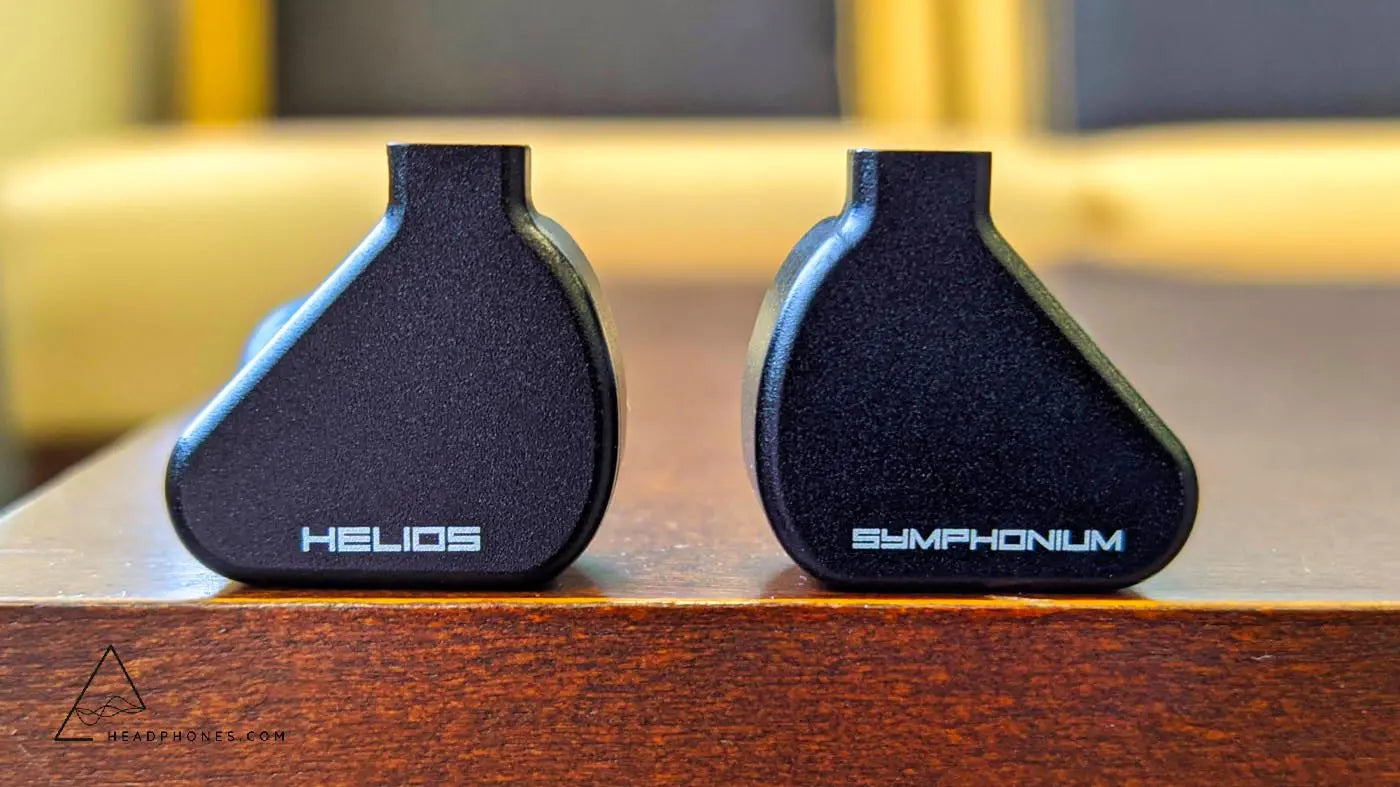
Symphonium Helios - $1,100
The Helios is an IEM for listeners who like their IEM to demand attention. The Helios has a classic neutral-bright signature. Its presentation is clean with a slight upper-midrange emphasis and a (better than) class-leading treble response. That said, it does have a bit of disjointed feel in the mid-bass/lower-mids transition due to a 200 Hz recession. Beyond that, the Helios has almost zero weaknesses in the technical department: sharp leading edges to notes, notable micro-contrast, and incisive, slightly out-of-head imaging. The only thing that holds us back from unequivocally recommending the Helios is its fit - it’s just a little too large for some ears. But if you can get around that, it is our humble opinion that the Helios is one of the best sounding reference IEMs for the price.
Read Fc-Construct’s review | Read Precogvision’s review
Symphonium Audio Helios In-Ear Headphones
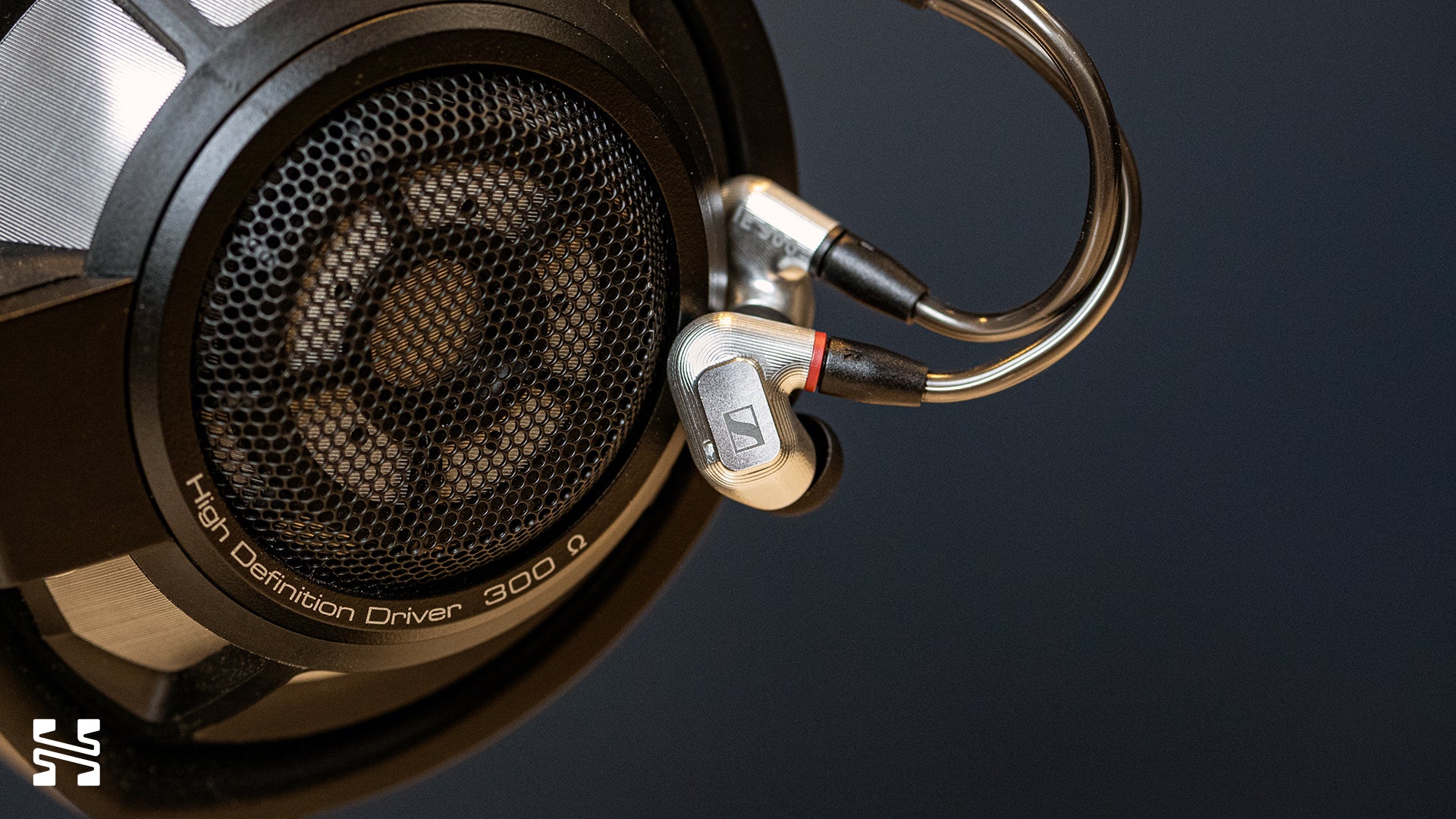
Sennheiser IE900 - $1,500
Sennheiser is a legendary name in audio. But unlike their pedigree in headphones, they’ve struggled to find relevance in the modern IEM landscape. Enter the IE900. Sennheiser’s return to the high-end market was marked with arguably the best single dynamic driver IEM out there. The raw quality of its bass, its dynamics and power, easily competes at the highest level. To contrast all of this bass energy, the IE900 has a significant amount of mid-treble elevation. Yet Sennheiser, through meticulous research and design, has managed to do what many companies can only dream of: a bright, lively treble that doesn’t compromise on control. Overall, the IE900 has a vivid U-shaped that’s made for immersion. Unfortunately, the IE900 is not perfect. Namely, its upper midrange structure has an awkward recession that compromises vocal performance. Furthermore, the IE900 doesn’t quite hold up to the U4s or Helios when it comes to resolution or imaging.
While the IE900 isn’t our first choice, it’s definitely one of the best “flavor” IEMs to have in your collection, particularly if you’re open to EQing the midrange. Between the authors of this article, Precogvision has owned one. Fc-Construct is sorely tempted.
Read Precogvision’s review | Read Fc-Construct's review
Sennheiser IE 900 In-Ear Headphones
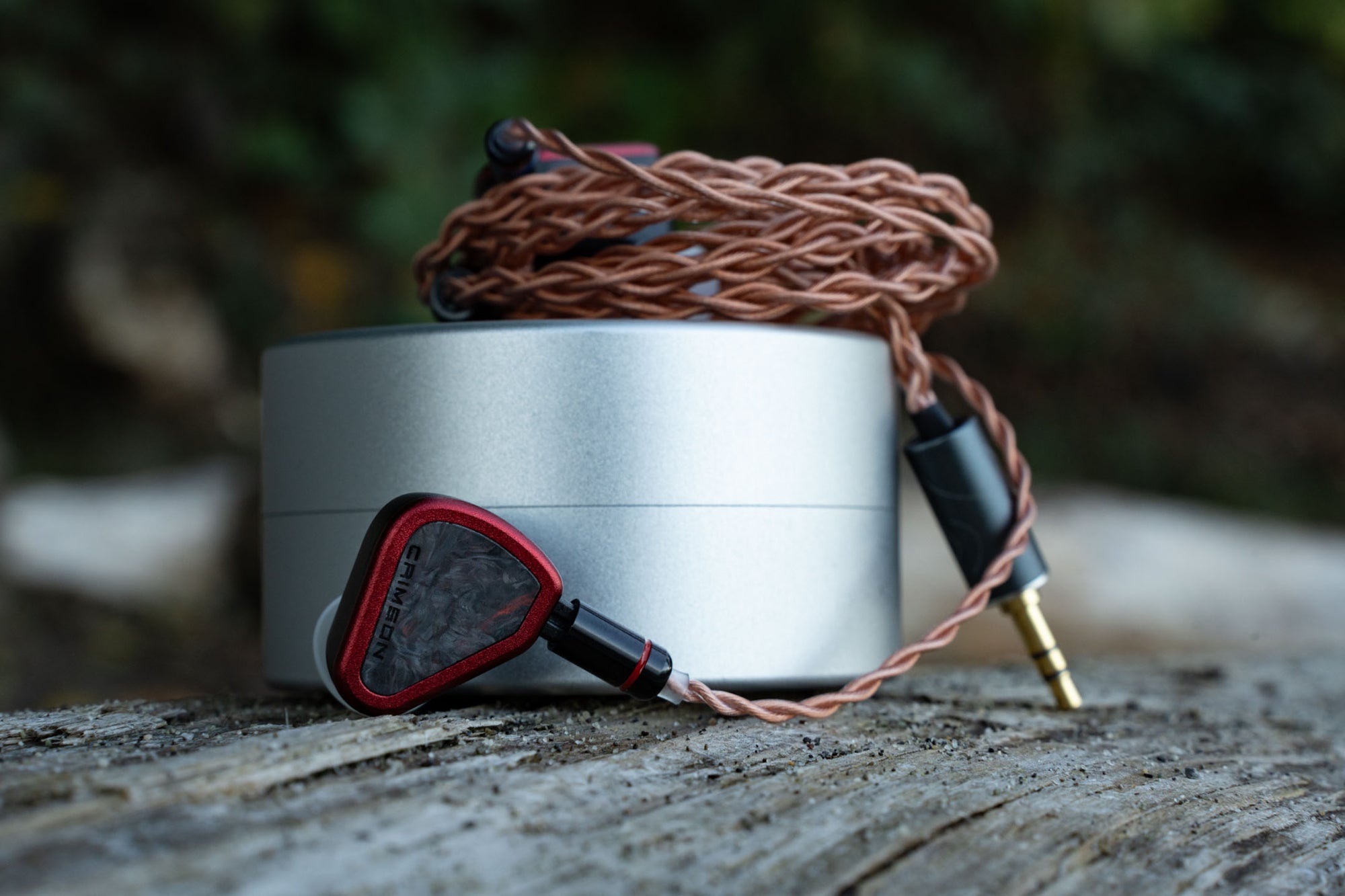
Symphonium Crimson - $1,500
Like the Helios, the Crimson is an intense sounding IEM. The bass response of the Crimson is incisive like only BA bass can be, yet more impactful than it has any right to be for BA bass. The upper midrange of the Crimson is forward as can be with an aggressive edge. The biggest point of contention would be the Crimson’s treble response, where it may come off as excessively sharp. This is an IEM that benefits from tip swapping. That said, keep an eye out of the upcoming Symphonium Europa that looks to address the treble concerns.
Overall, the Crimson’s sound is highly colored yet undoubtedly delivers when it comes to technicalities too. In particular, the sense of dynamics it is able to deliver might be the gold standard for its price point. The Crimson is a slap in the face to common driver stereotypes, and it’s the best-sounding 4 BA IEM Precogvision has heard so far.
Read Precogvision’s review | Read Listener’s review | Watch Resolve’s review

Elysian Diva - $1,500
This IEM stole the show for Precogvision at CanJam Singapore 2022, so much so that he purchased a CIEM version on the spot. After nearly six months of waiting, the several months with it in his ears since have convinced him that it merits entry on this list. The Diva’s “gimmick” is a bass dial which allows for three distinctive signatures. But unlike with many other IEMs, he actually finds himself using the different modes. The common denominator between every setting is that the Diva sounds exciting, contrasty, and with a slightly-artificial-but-desirable coloration to timbre. Indeed, the Diva is a superstar for anything with female vocals; the real question is whether you’re willing to play the waiting game for this excellent IEM.
Best IEMs Over $2,000

64 Audio U12t - $2,000
It had to make the list. The 64 Audio U12t remains one of our favorite IEMs, and it’s made its mark in the audio community as the perennial flagship benchmark. The U12t really makes so few mistakes thanks to its slightly warm, yet clean tonality with a touch of spice up top in the upper-treble. And it's no technical slouch either, from its superb BA bass, impactful center imaging, and authoritative macro-dynamics. Listeners seeking a more forward sound, particularly in the upper-midrange, might be suited elsewhere, but it’s difficult to go wrong with the U12t. It's for these reasons that the U12t is the first IEM that we’d recommend to anyone with an abundance of money to spend and isn’t exactly sure of what they want.
Read Fc-Construct’s review | Read Precogvision’s review | Read Resolve’s review | Watch Goldensound’s review
64 Audio U12t In-Ear Headphones
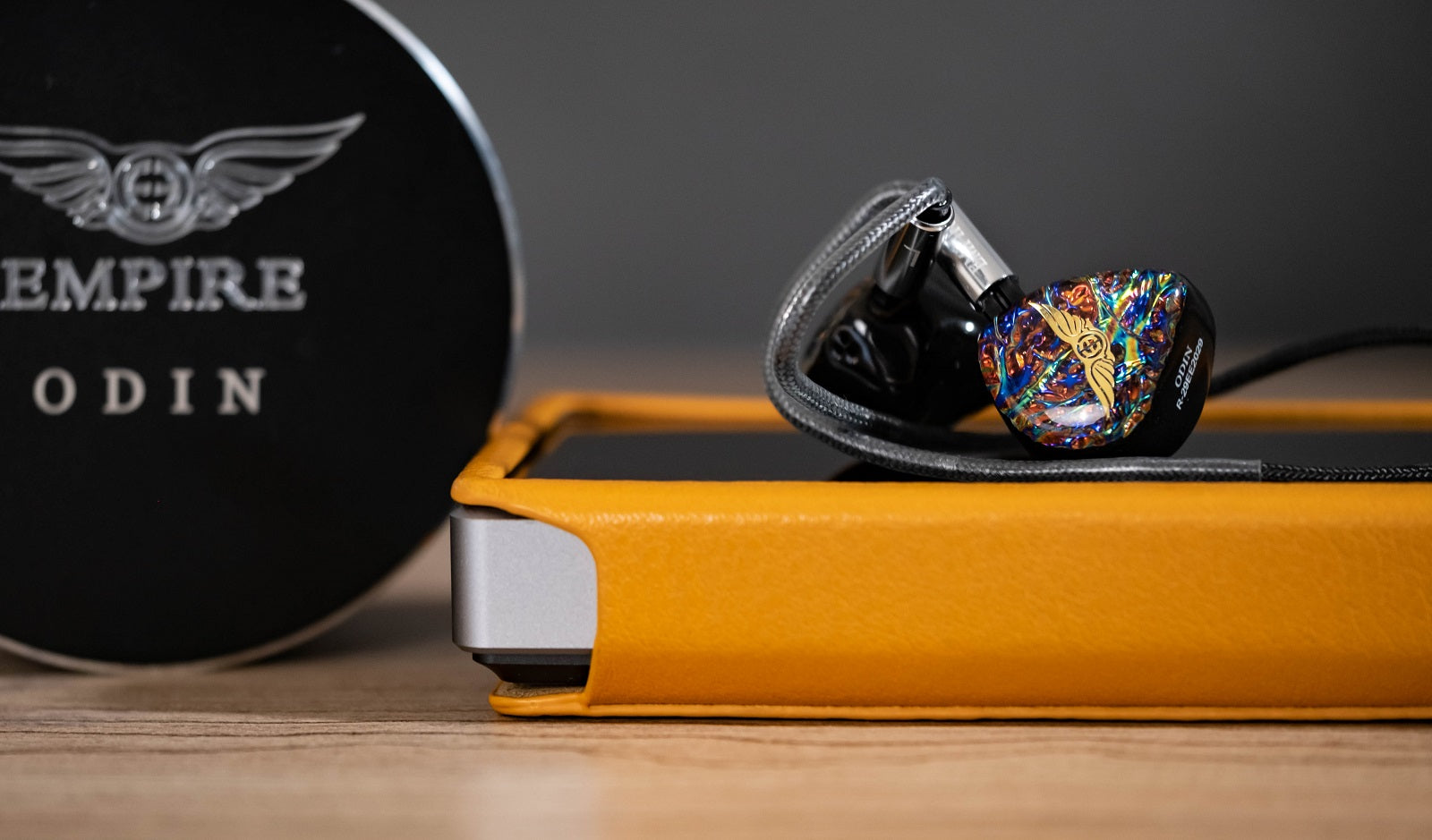
Empire Ears Odin - $3,400
Whereas most of Empire Ears' IEMs are distinctive for being V-shaped bass cannons, the Empire Ears Odin eschews this trend, falling more along the lines of neutral with sub-bass boost. Moving onwards, it sports a pronounced emphasis to the pinna compensation and upper-midrange whilst not straying into unwanted thinness, lending to strong center imaging and a present, crystal-clear midrange. The Odin is sure to impress on first listen in this regard, even if some might find it toeing the line. The treble of the Odin is also remarkably controlled if not a little soft in attack (which does benefit coherency at least). The prime weakness of the Odin would lie in its macro-dynamics which veer toward unwanted loudness; however, there can be no doubt that the Odin is an IEM that comfortably rests at the top.
Read Precogvision’s review | Read Resolve’s review
Empire Ears Odin In-Ear Headphones
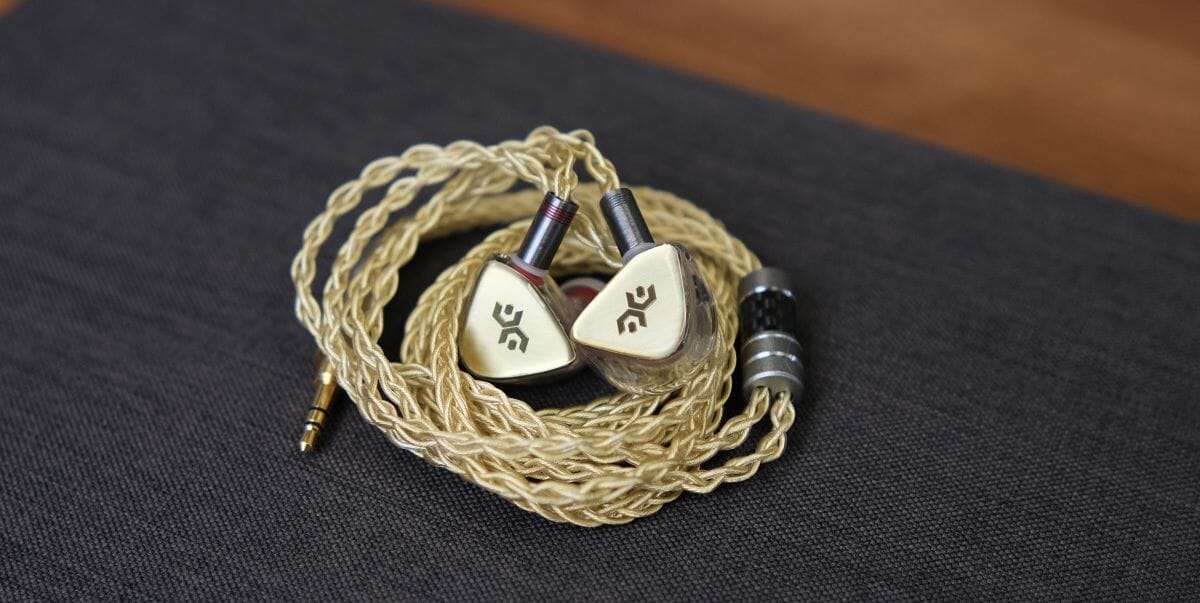
Elysian Annihilator - $3,500
Looking for an IEM that'll have you at the edge of your seat every time you hear it? Then the Annihilator should be the first IEM on your list. The Annihilator's standout is its treble response; it has almost linear extension and the lightning quick tactility that true electrostatics like the Shure KSE1200 deliver. The general dynamics and transients on the Annihilator are also nothing short of extraordinary. It articulates dynamic swings quickly and with superb macro-contrast, only falling short in the micro-contrast department wherein it has some compression to its individual instrument lines. But no matter - give it up for one of the select few IEMs to blow us away. The Annihilator 2023 cranks up the level of the sub-bass even more compared to the 2021 version.
Price is No Object

Subtonic STORM - $5,200
What do you have to do to be the best IEM in the world? While we don’t have a true answer for you, we do have a bit of insight: Do something no one has ever done. And do it well. That is the Subtonic STORM.
Precogvision hears it as the acclaimed Genelec speakers in IEM form. Fc-Construct sees it as catching up to the audio dragon he’s been chasing. Either way, the STORM is an IEM that compels us to listen to it again and again. The explosiveness and physicality of its dynamics is unlike anything currently in the market. It ups the ante on practically every technical parameter that the U12t excelled in. It doesn’t compromise on tuning either. Despite its astronomical asking price, it has a studio-reference tuning more akin to that of the “new meta” IEMs. Altogether, the sheer gusto of its presentation transforms familiar songs into a whole new listening experience. Though diminishing returns creep ever closer in IEMs, the STORM is a perfect representation of why the market for exotic ultra-high end IEMs still exists.
Read Fc-Construct's review | Read Precogvision’s review | Watch Resolve’s review
Conclusion
If you read this far, you probably fall into one of three camps:
- You’re looking to plan your next upgrade and are scoping out what the high-end holds.
- You just want to see what the pinnacle of audio looks like.
- You own a top-tier IEM yourself and want to know if it made the list.
Well, to group #3, if your favorite, mega-expensive IEM didn’t make this list, then don’t feel too bad. We can’t emphasize enough that audio is a very personal hobby and what we primarily index for is a tasteful balance between tonality and technicalities. As with anything, it’s always a compromise between qualities. While great IEMs help mitigate just how much needs to be sacrificed, we don’t live in a perfect world. Everyone will have their own preferences in how much one trait is traded-off in favor of another. That is fundamentally the raison d'etre of this hobby - an individual’s pursuit of perfect sound. Your perfect sound. Not someone else’s.
And keep in mind, neither of us have heard everything out there. The biggest challenge facing reviewers is time and access; reviewing is a hobby we enjoy outside of our day jobs and we just plain don’t have the ability to hear everything. But from what we’ve tried, this is our IEM buyers guide for the summer of 2024. For more resources check out our reviews here at The Audio Files, over at The Headphone Show on YouTube, and join our Discord server where we have a great community of audio enthusiasts happy to talk about all things audio.


